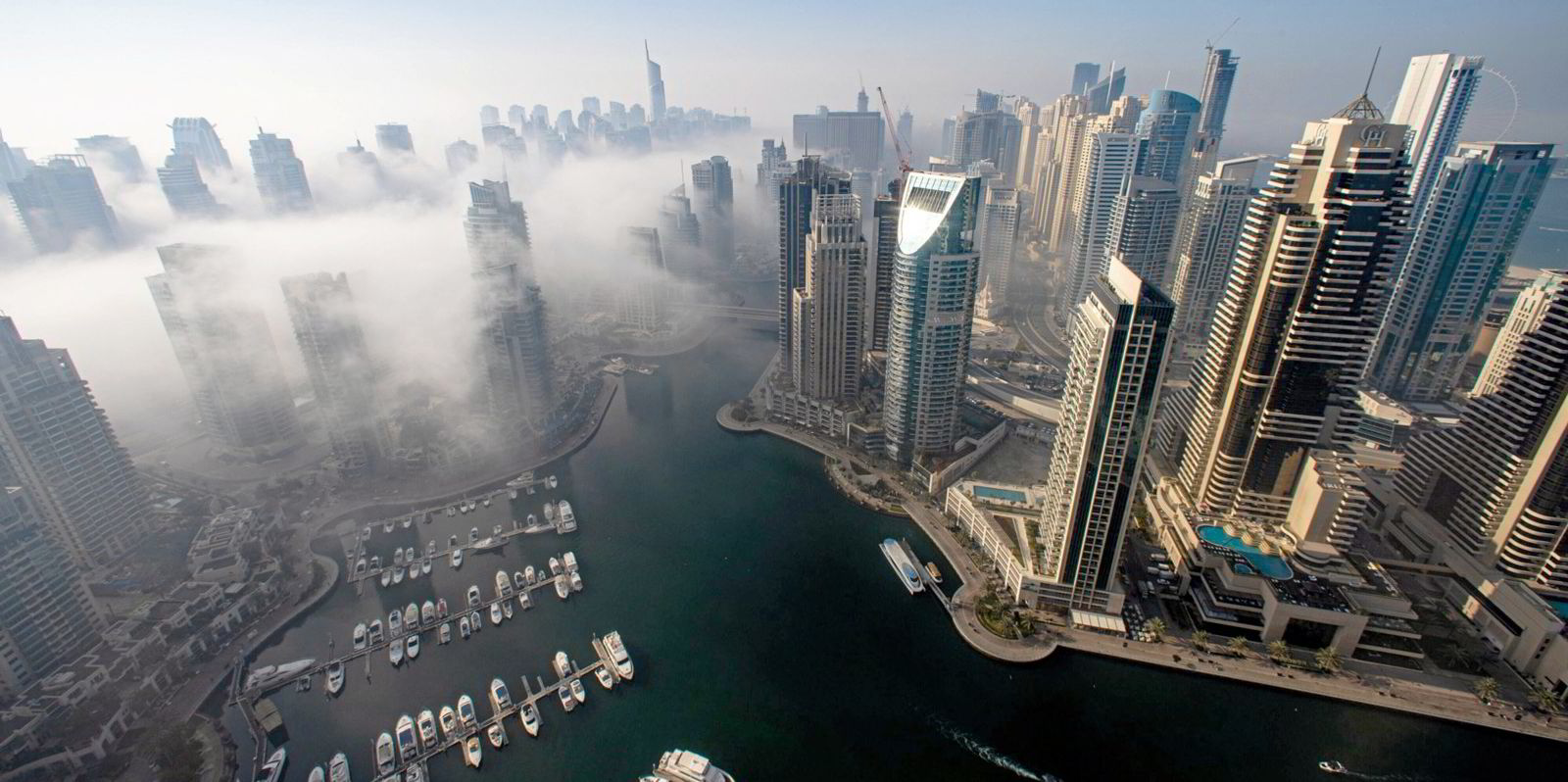For a chief executive behind one of shipping’s more impressive growth stories, Shahid Naziri is remarkably unforthcoming about his company’s success.
From a tiny office attached to one of Dubai’s luxurious shopping malls, Naziri oversaw the growth of Radiating World Shipping Services into a major tanker operator in 2023.
The ship manager went from nothing in December 2022 to operating 17 tankers with a value of more than $500m within six months, according to VesselsValue.
The reasons for this expansion are obvious — Russia and sanctions. Understanding the force behind the ship-buying spree is less clear.
Before the activity, Naziri gave every impression of being a small-time shipping player. He was involved in scrappage deals but gave little indication of the company’s broader plans to business associates, TradeWinds understands.
By the end of 2023, the company was listed by Equasis as managing 10 tankers under the “Radiating” brand. All were at least 17 years old and almost exclusively involved in hauling Russian oil. Half of them collected oil cargoes from Russian ports in December alone.
They were owned by single-ship companies, with addresses care of Radiating World’s sparsely furnished cubby-hole in Dubai.
But in December, that office was identified by the UK government as the headquarters of Radiating World as it imposed sanctions for “obtaining a benefit from, or supporting the Government of Russia, through carrying on business in a sector of strategic significance … namely the Russian energy sector”.
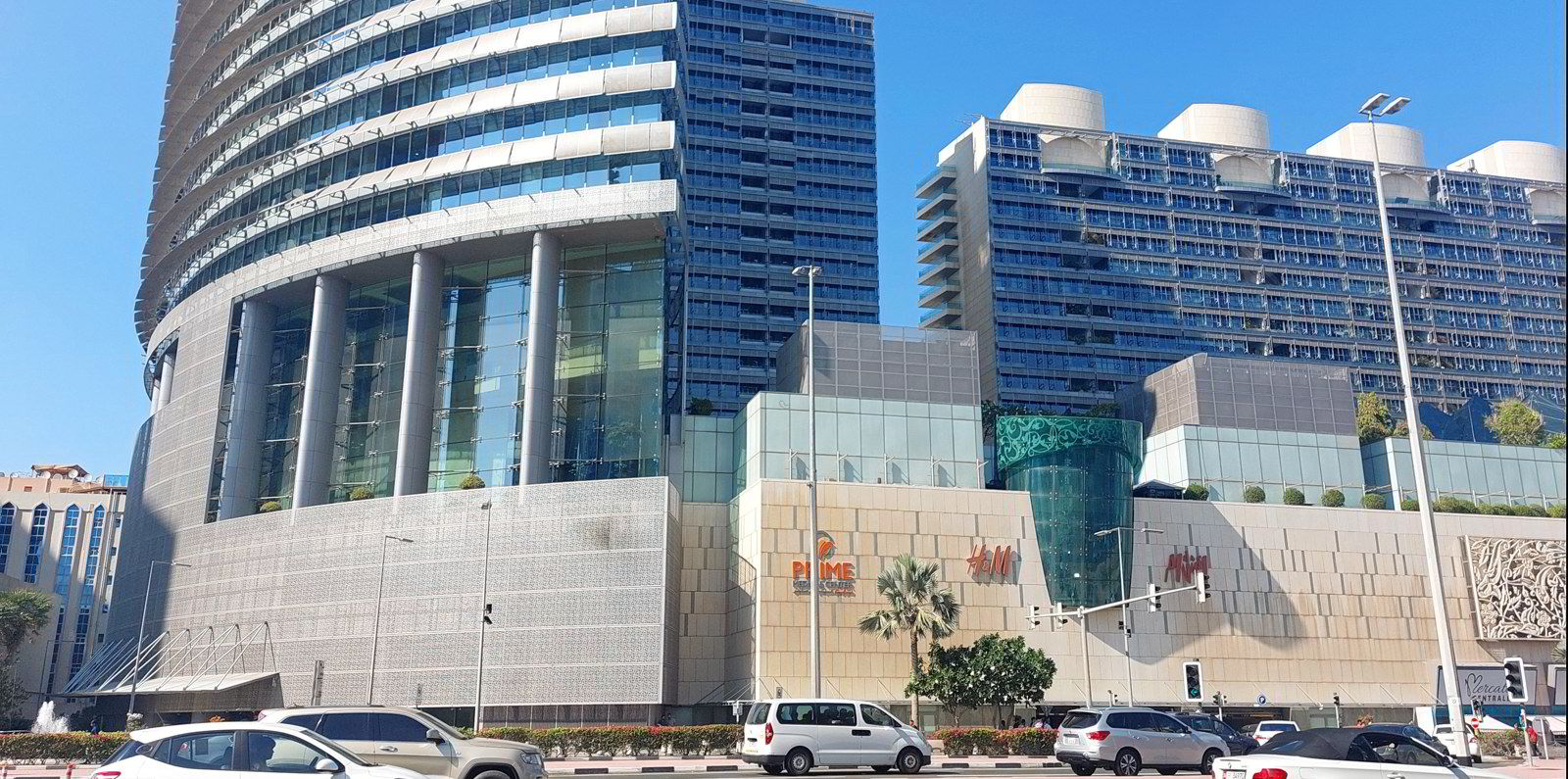
The move prompted a reshuffle of Radiating World’s business. By early January, the fleet under management was down to just four vessels, according to Equasis, with some of its formerly managed tankers moved to other little-known companies elsewhere in Dubai.
“There are lots of ships controlled by people we have never heard of before,” one shipping source told TradeWinds. “We don’t know the owners, class, P&I and charterer on some of those ships.”
New frontier amid sanctions
Naziri’s company can be seen as part of the rise of Dubai as the “new Geneva”, with shipping playing a significant role in the economic growth of the United Arab Emirates.
The ease of setting up businesses, the low tax environment, comfortable lifestyle, comparatively cheap office space and advantageous time zones have all contributed to a shift of mainstream shipowners and brokers to Dubai, said industry players.
“If you said London was a senior in terms of maturity, and Singapore is more a middle-aged person, then Dubai is still a toddler, or maybe a pre-teen,” said one shipping source.
But shipping is still responsible for about 10% of the country’s GDP, said Abdulkareem Al Masabi, the CEO of Adnoc Logistics & Services and chairman of the Emirates Shipping Association.
Dubai is ranked fifth globally among the prominent shipping centres, he told a shipping event at the COP28 conference in Dubai. As the country “evolved into a maritime powerhouse” it drew in major traders, he said.
“And this has brought an entire thriving ecosystem of service companies, shipbrokers, managers, bankers and insurers into the UAE,” said Al Masabi.
It has included an influx of brokers from Geneva, where established shops have opted out of Russian trades since the start of the war.
The UAE has no sanctions targeting Russia, although local banks have improved their due diligence checks with the influx of Russian business, said one prominent Dubai shipbroker.
In Switzerland, Russian crude and refined oil imports are prohibited and any exports to third countries must be below the price caps.
The result has been an exodus to Dubai, lured by high salaries, low taxes and the opportunity to resume working with Russian players in the oil market.
Commodity traders registered in the UAE went from nothing at the start of the war to buying more than 50% of crude oil sold by Russia by the middle of 2023, according to Swiss non-profit organisation Public Eye. The share for Swiss-based traders has dropped from 47% to 5%, it said.
The CEO of BRS Group, Walter Gilbert, told TradeWinds in Geneva last year that his company was not doing any Russian trade in part because banks were concerned that they could not be sure if cargoes were being sold under the price cap.
The scheme was introduced at the same time as a European ban on Russian oil imports to keep oil flowing, but limit revenues to the Kremlin.
The cap for crude has been set at $60 a barrel since December 2022, and at $100 and $45 for oil products since February 2023.
‘Shadow’ fleet dynamics
Gilbert said there was no independent assurance system on price other than letters from third parties — usually vested interests — that the oil had been sold at a certain price.
“A lot of this price cap business is done through other brokers or directly with the client,” said Gilbert.
“There are some small shops, smaller companies that have located, or relocated, to the Middle East and they are specialised in this business.
“There are many small shops out there. It’s fragmented.”
The picture is the same for tanker owners who proliferated after the invasion of Ukraine.
S&P Global Intelligence found that 100 new companies set up in 2022 in the UAE were linked to Russia in some way through formerly Russia-owned or flagged vessels, ownership structures or by making port calls there since December 2022.
Ship manager Radiating World was set up in 2019 before Russia’s invasion of Ukraine, according to a company website.
It states it believes in a philosophy of “passionately working under a highly ethical and compliant framework” but gives little information about its management or its identities.
The website of another Naziri-led company, Ocean Radiating World Services — since taken down — described him as the founder of Radiating World with 30 years of business management experience.

It said he founded an air and sea shipping company in the early 1990s in Pakistan that achieved “phenomenal and exponential growth”.
The offices of Ocean Radiating World Services were in Dubai’s Maritime City, a purpose-built industry development. The office is now occupied by another company and “Mr Shahid” was no longer based there, said staff.
But Radiating World has created a stir beyond Dubai, not least in Denmark, where one of the company’s elderly fleet lost power in one of the world’s most congested shipping lanes.
In May, the 53,100-dwt product tanker Canis Power (built 2005) lost power in a busy shipping lane off the coast of Denmark with 340,000 barrels of Russian oil on board.
The Canis Power — one of a block of ships bought from Tsakos Energy Navigation of Greece four months earlier — cost $21m, double the market value of a year earlier in the inflated secondhand market.
It strayed from a narrow shipping channel in the Danish Straits and nearly ran aground, according to a detailed account of the incident by Craig Kennedy, a Russia energy and finance expert and associate at Harvard University’s Davis Center.
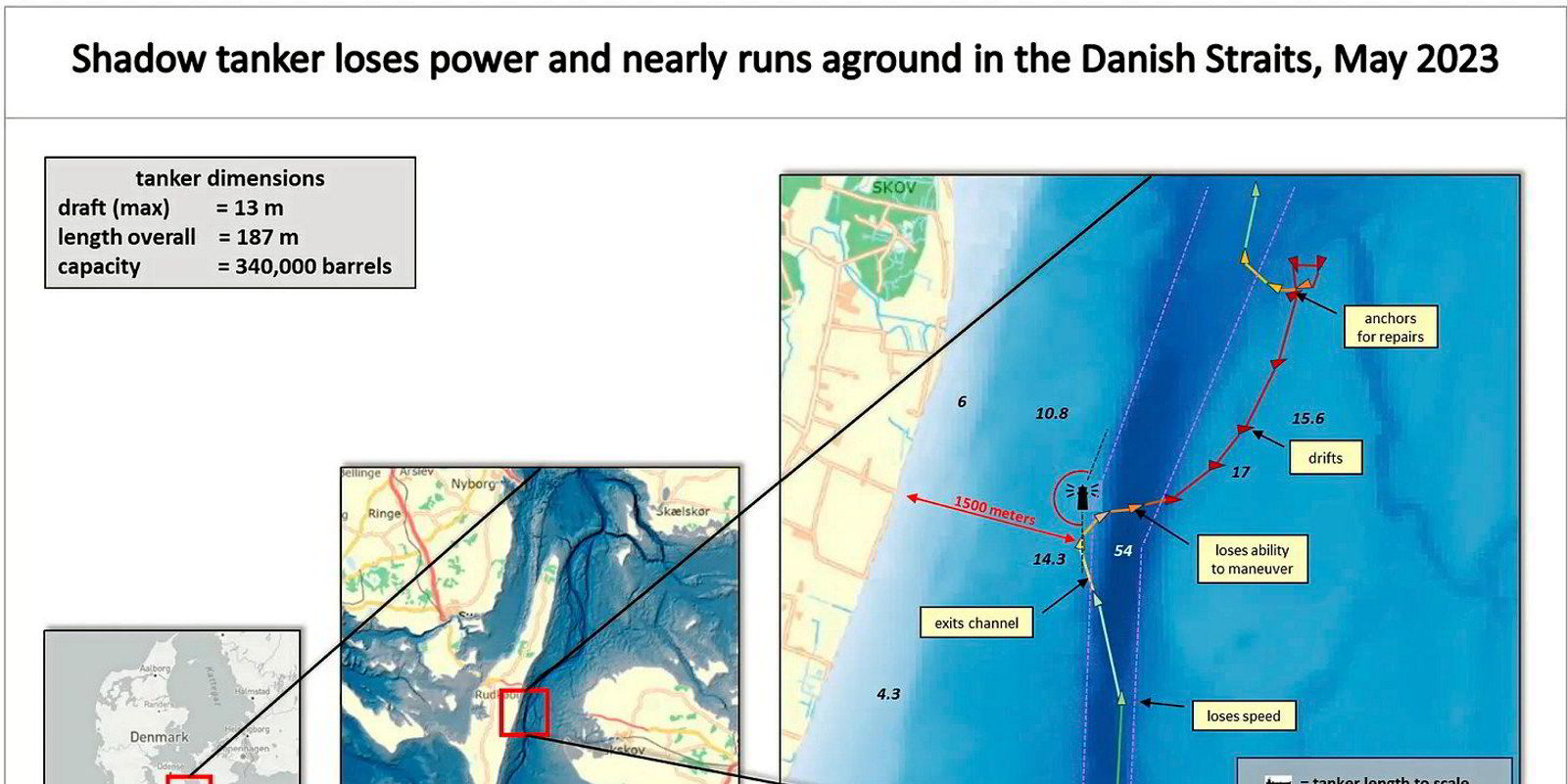
The ship signalled it was not under command before veering back across the shipping lane and finally reaching deeper waters for repairs. Danish pilots have expressed concerns about the standard of tonnage that serves Russian ports.
The ship had just changed protection and indemnity provider. Details of replacement coverage were hard to come by, said Kennedy.
Sweat the assets
“A defining feature of the shadow fleet is the fact that it has severed ties with the International Group [of P&I Clubs],” he said.
“You have these specialist operators who buy and manage these late-in-life tankers … and they insure these vessels properly.
“But then you have the shadow guys who just want to sweat these assets and extract as much cash as they can.”
Port state control at the Canis Power’s first post-breakdown call to Novorossiysk on the Black Sea revealed 11 deficiencies but the vessel was not detained.
The ship was one of four Radiating World-operated vessels that moved to new ship managers in August, according to Equasis data.
But Kpler tracking data suggests that the ship has kept busy with calls at Russian oil terminals since the incident with no obvious break in trading.
The industry’s biggest concern is an accident involving an elderly vessel with inadequate insurance cover for the damage.
It followed an explosion on board a ballasting 26-year-old tanker, the 96,800-dwt Pablo (built 1997), in Malaysian waters in May 2023.
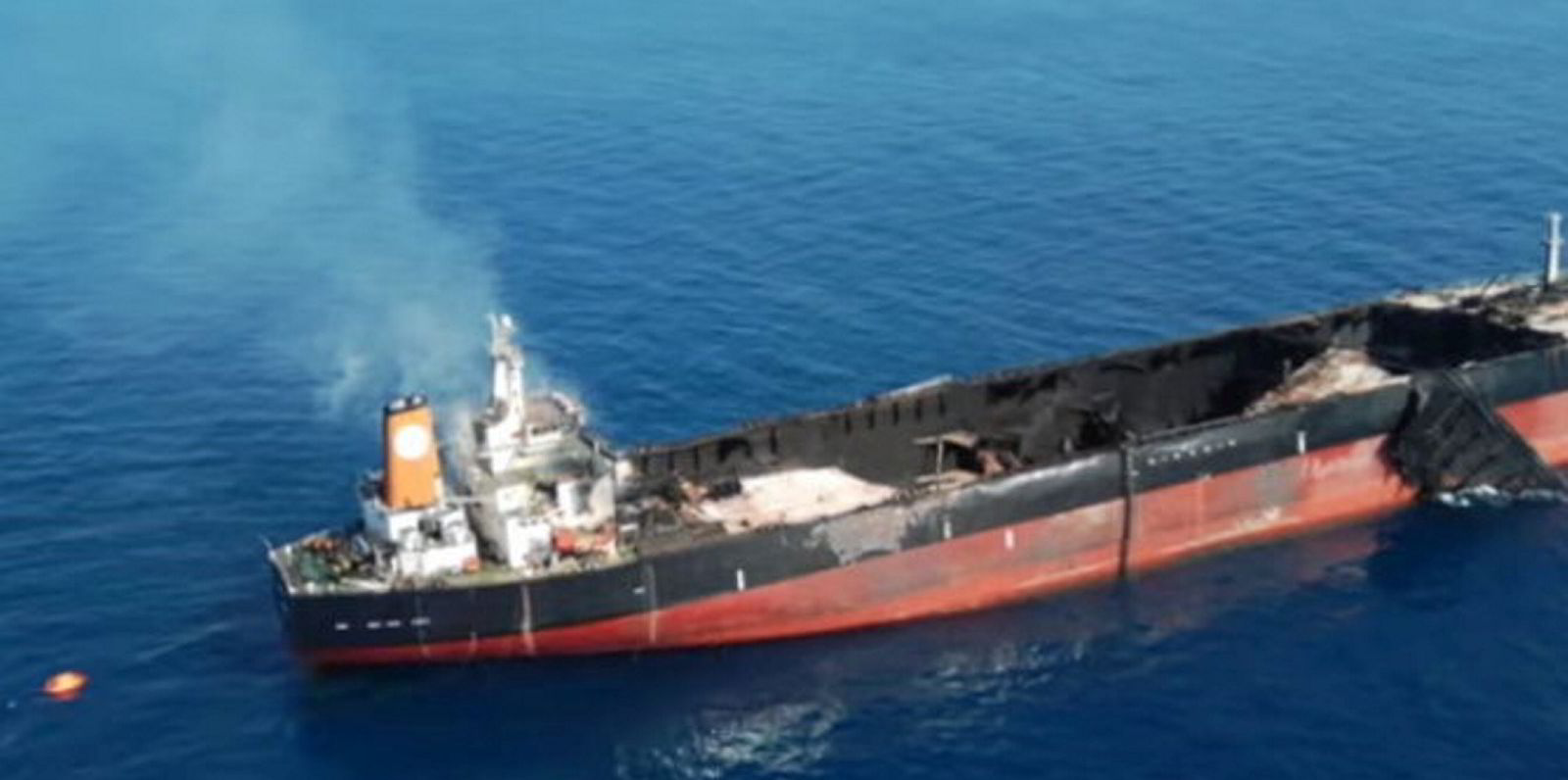
“Some ships have P&I that are not real — like the Pablo near Singapore — and the P&I disappears,” said a shipping industry source. “There are hundreds of tankers in the same situation as [the] Pablo.”
Shipbroker Braemar said this month that the size of the non-European or G7-owned grey fleet involved in Russian trades increased in the final months of 2023 as the US cracked down on price-cap breaches and blacklisted tankers. It said the fleet increased by one-third from October to December when it reached 205 vessels.
Ethical dilemmas
Marc Lecoanet, the CEO of shipbroker Riverlake, is known as a specialist in the Russian trade, but has not touched it since the start of the war for “ethical reasons”.
“We don’t want to be told one day that we participated in the Russian effort for the war,” he told TradeWinds.
“We want to sleep well. We want to position our company with a lot of ethics and principles — and we stick to it.
“But it has had a cost. We see what others do. We know very well what’s happening. We know the freight rates are mad.
“We hear people say it’s business, we need to make money. But, sorry, not for us.”
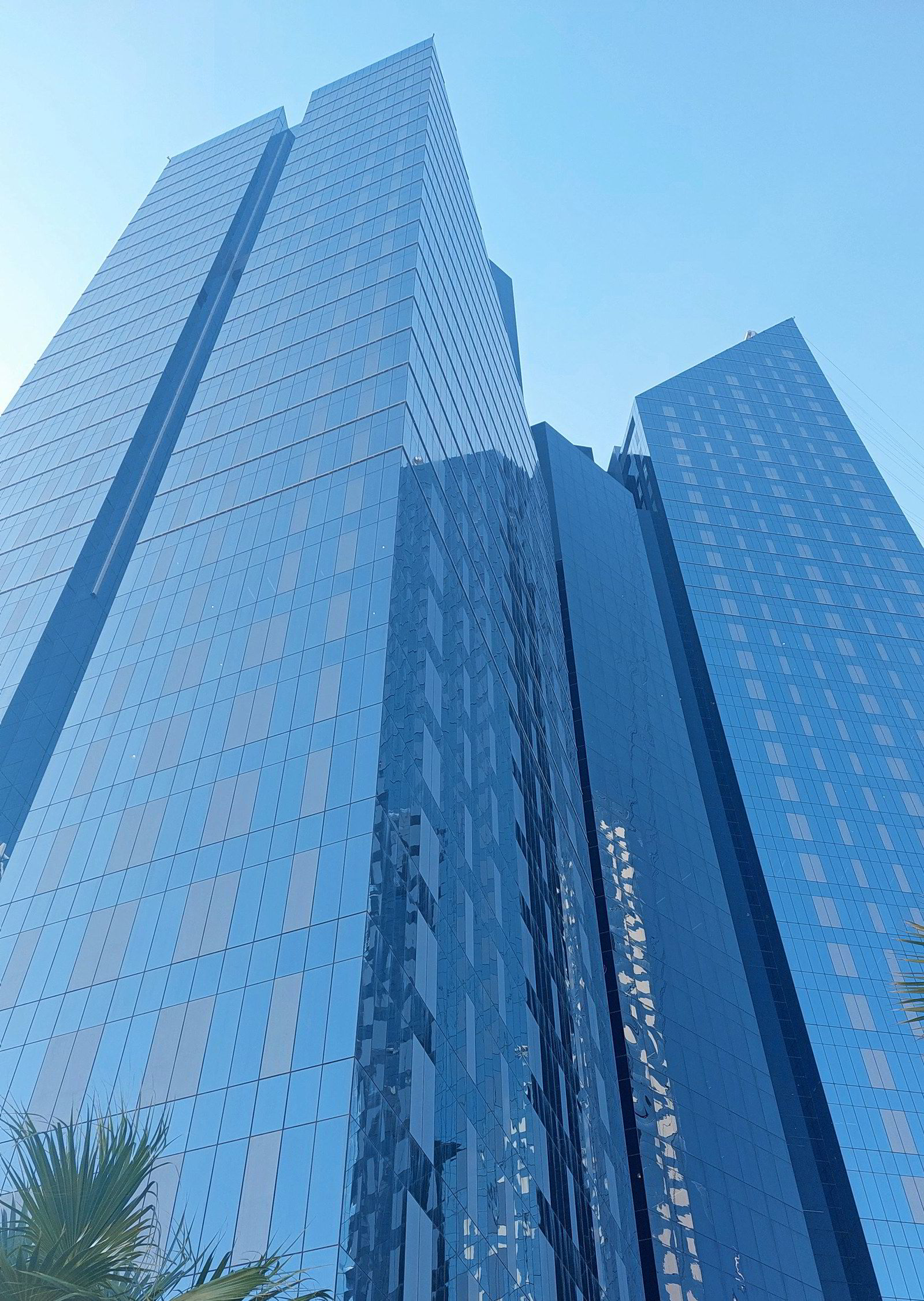
The sanctions regime opened the door to operators like Radiating World and Hennesea Holdings, a UAE-based manager, which was sanctioned by the US last week.
Dubai is also home to Sovcomflot managers Sun Ship Management and Oil Tankers (SCF) Management, which have been targeted by Western sanctions enforcers.
TradeWinds has contacted Naziri but he has not responded to calls, emails and messages.
“As far as shipping is concerned, there’s room for everybody,” one shipping source told TradeWinds. “And if you look at London, a lot of Russian wealth is there.
“You need a little bit of chaos.”
Additional reporting by Ian Lewis
Read more
- Dozens more elderly tankers join Iran trade as exports surge
- Suez Canal tanker trips set to plunge by two-thirds in January, says IEA
- Greek shipowner wins ransom legal fight in key ruling for Red Sea crisis
- Russian shipowner Sovcomflot mulls Red Sea divert as tensions mount
- Insurers hike war risk rates following Red Sea attacks on US and Greek-owned ships
- Northern Sea Route crossings dominated by crude oil cargoes last year
